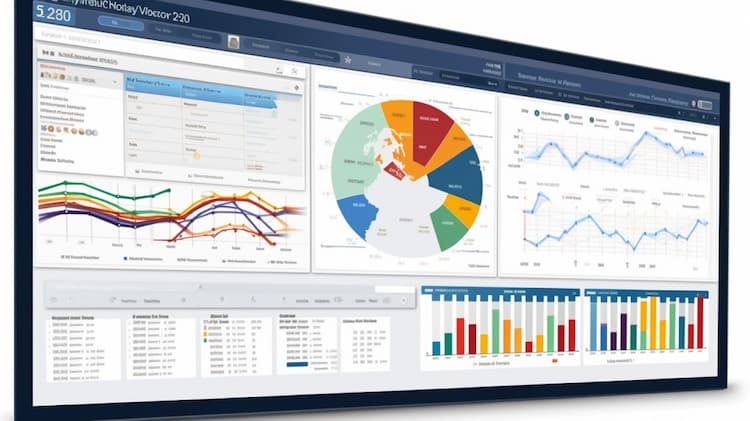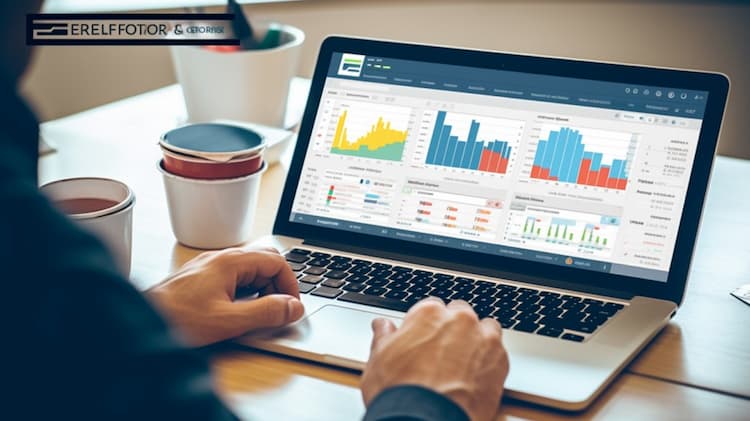
What are the best Cloud Computing ETFs?
If you're looking to invest in cloud computing, Exchange-Traded Funds (ETFs) can be a convenient option. Cloud computing ETFs provide investors with exposure to a diverse portfolio of companies involved in the cloud computing industry, including infrastructure providers, software developers, and service providers. In this article, we will explore some of the best cloud computing ETFs available, offering potential investors a glimpse into this rapidly growing sector.
Cloud Computing ETFs: Exploring the Top Performers
When it comes to investing in the technology sector, cloud computing has been a hot topic in recent years. As businesses increasingly rely on cloud-based solutions for their operations, investors are looking for opportunities to capitalize on this growing trend. One way to gain exposure to cloud computing is through exchange-traded funds (ETFs). These funds offer diversified portfolios of cloud computing companies, allowing investors to participate in the potential growth of the industry. One notable ETF in this space is the Global X Cloud Computing ETF (CLOU).
CLOU is designed to track the Indxx Global Cloud Computing Index, which includes companies involved in the development, adoption, and usage of cloud computing technology. The ETF holds a diverse mix of global cloud computing stocks, including both established players and emerging companies. Some of the top holdings of CLOU include Amazon.com Inc. (AMZN), Microsoft Corporation (MSFT), and Salesforce.com Inc. (CRM).
Compared to other cloud computing ETFs, CLOU stands out for its broad exposure to the industry. While there are several other cloud computing ETFs available, such as the First Trust Cloud Computing ETF (SKYY) and the WisdomTree Cloud Computing Fund (WCLD), CLOU offers a comprehensive approach by including a wide range of companies involved in cloud computing.
 CLOU overlap What are the best Cloud Computing ETFs?
CLOU overlap What are the best Cloud Computing ETFs?
Cloud Computing ETFs vs. Technology Sector ETFs
Investors who are specifically interested in cloud computing may wonder whether it is more beneficial to invest in a dedicated cloud computing ETF or a broader technology sector ETF. While both options have their merits, there are some key differences to consider.
Cloud computing ETFs, like CLOU, provide targeted exposure to the cloud computing industry. These ETFs typically hold a basket of stocks from companies directly involved in cloud computing services, infrastructure, or software. By investing in a cloud computing ETF, investors can focus their capital on the specific subsector of technology that they believe has strong growth potential.
On the other hand, technology sector ETFs offer a broader exposure to the overall technology industry, which includes various subsectors beyond cloud computing. These ETFs may hold stocks from hardware manufacturers, software developers, semiconductor companies, and other technology-related businesses. While technology sector ETFs can still include cloud computing stocks, the allocation may be smaller compared to a dedicated cloud computing ETF.
Ultimately, the choice between a cloud computing ETF and a technology sector ETF depends on an investor's preference and investment strategy. Those seeking concentrated exposure to cloud computing may find dedicated cloud computing ETFs more appealing, while investors looking for broader technology exposure may opt for technology sector ETFs.
Factors to Consider When Choosing a Cloud Computing ETF
When evaluating cloud computing ETFs, there are several factors to consider to make an informed investment decision:
Expense Ratio: The expense ratio represents the annual cost of owning an ETF. Lower expense ratios can have a positive impact on long-term returns, so it's important to compare expense ratios among different cloud computing ETFs.
Holdings and Diversification: Assess the holdings and diversification of the ETF to understand the exposure to various cloud computing companies. A well-diversified ETF can help mitigate risk and capture the overall performance of the industry.
Performance and Track Record: Evaluate the historical performance and track record of the ETF. Look for consistent returns and consider how the ETF has performed during different market conditions.
Fund Size and Liquidity: Consider the size and liquidity of the ETF. Larger funds generally have more assets under management, which can provide greater liquidity and lower trading costs.
Conclusion
Cloud computing ETFs offer investors a way to gain exposure to the growing cloud computing industry. While several ETFs are available in this space, the Global X Cloud Computing ETF (CLOU) stands out for its comprehensive approach and diversified portfolio. Investors interested in cloud computing should carefully consider factors such as expense ratio, holdings, performance, and fund size when choosing a cloud computing ETF that aligns with their investment goals.
Disclaimer: This article is for informational purposes only and does not constitute financial or investment advice. The content provided does not recommend any specific investment product or strategy. The information is not intended to be a substitute for professional financial advice. We do not provide any investment advisory services.
Sources:
https://www.globalxetfs.com/ CLOU ETF issuer
https://www.globalxetfs.com/funds/clou/ CLOU ETF official page
FAQ
What is a Cloud Computing ETF?
A Cloud Computing ETF is an exchange-traded fund that focuses on investing in companies involved in the cloud computing industry. These ETFs typically hold stocks of companies that provide cloud computing infrastructure, software, services, or other related products.
What are the advantages of investing in Cloud Computing ETFs?
Investing in Cloud Computing ETFs can offer diversification across various companies within the cloud computing industry. It provides exposure to a growing sector with potential for long-term growth. ETFs also offer liquidity, as they can be bought and sold on stock exchanges throughout the trading day.
What are some popular Cloud Computing ETFs?
Some popular Cloud Computing ETFs include the Global X Cloud Computing ETF (CLOU), First Trust Cloud Computing ETF (SKYY), WisdomTree Cloud Computing ETF (WCLD), and the iShares Expanded Tech-Software Sector ETF (IGV), which includes a significant allocation to cloud computing companies.
How do Cloud Computing ETFs work?
Cloud Computing ETFs work by pooling investors' funds to purchase a diversified portfolio of stocks from companies involved in the cloud computing industry. The ETFs aim to track the performance of a specific index or use a rules-based approach to select cloud computing companies.
What factors should I consider when choosing a Cloud Computing ETF?
When choosing a Cloud Computing ETF, consider factors such as the expense ratio, tracking error, assets under management, liquidity, and the methodology used to select the underlying companies. It's also important to assess the ETF's performance history and the diversification it offers.

























